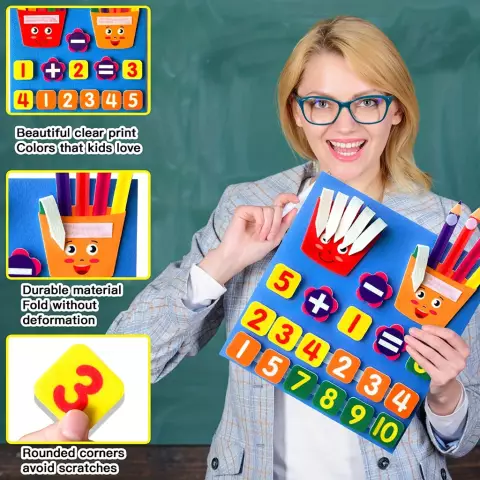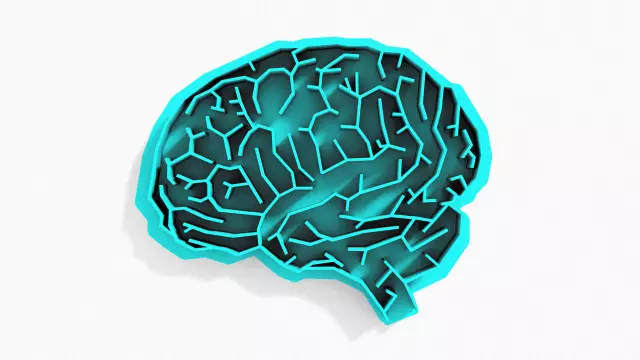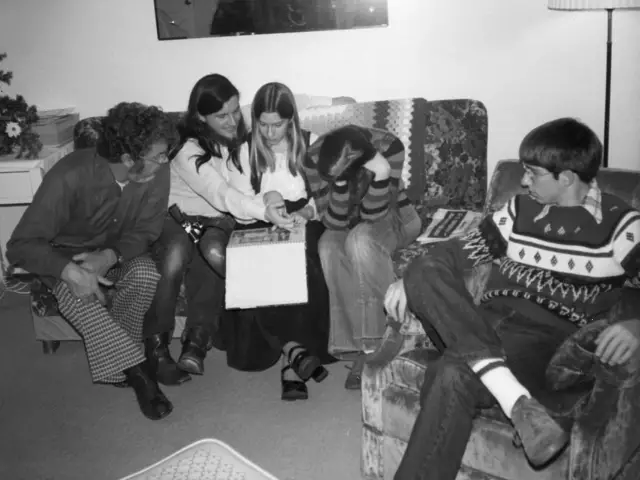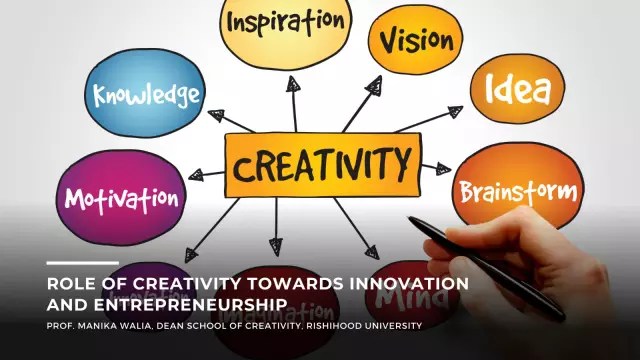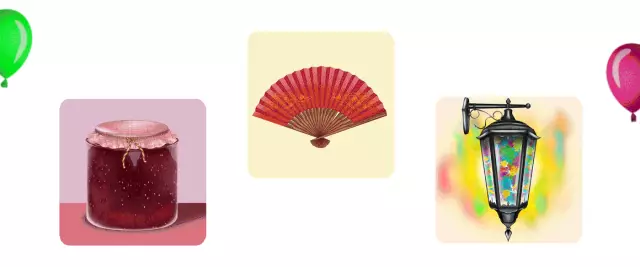- Author Rachel Wainwright wainwright@abchealthonline.com.
- Public 2023-12-15 07:39.
- Last modified 2025-11-02 20:14.
Learning numbers - educational games
Preparing a child for school means teaching a preschooler to read and count, and in order to learn to read or count, a child must first study the base - letters and numbers. It is recommended to start studying numbers with a child at the age of 2-3 years. The task of parents is to turn the study of the basics of mathematics into a fun and exciting game, because if the child associates the study of numbers with difficult and boring activities, then you can completely discourage him from studying mathematics in the future. Various educational games come to the aid of parents, numbers in which the child will learn easily and interestingly.
How to teach a child to count?

In order for the study of numbers and counting not to become a difficult task for the child, it is better to give him as much information as possible about these concepts from a very early age, show the child how this or that number looks, ask him to draw them and pronounce the names. You should not burden the child with studying all the numbers at once - it is better to start studying the basic 10 numbers, and devote a separate day of study to each of them. Various cubes or chips, which depict numbers, will become excellent auxiliary objects with which you can ask your child to find this or that number. It is much more difficult to explain to a child not the name and type of this or that number, but its meaning and the ratio of the quantities designated by them.
Educational games for children, the numbers in which the child will learn playfully, are aimed at both learning Arabic numerals and understanding their meaning. An effective training course for the little ones is a technique developed by physiotherapist Glenn Doman. He believed that by the age of 6, a child learns three times more new information than in the rest of his life. That is why it is so important at this age to engage in various educational games for learning with the child.
For the study of numbers, Doman developed special cards, on which were depicted not abstract symbols - numbers, but red dots - sets. So, for example, number 3 was personified by three circles, number 5 - five circles, etc. Such cards are not difficult to make on their own at home, and, according to Doman, it is much more important for a child to first learn the essence of the concept of quantity, and only then the order of counting. Therefore, you should not show the baby strange squiggles depicting numbers, it is much more important to explain what they mean by themselves.
The kid first learns to recognize and compare the number of red circles on the cards, and then, when he assimilates the sets on each of them, the circles can be replaced with standard Arabic numerals. In order for the transition from circles to numbers to be smooth and not cause bewilderment in the baby, it is better to first attach the corresponding number to each Doman card.
The simplest educational game for learning the ratio of numbers and numbers is the game "Count how many fingers." Parents show the baby any number of fingers, let's say two, and ask the baby to count how many fingers they show, and then find the card corresponding to the given number with the image of the number. For this educational game for children, in which numbers are studied by looking at real objects, you can use sweets, coins, small toys - in general, any objects in which the child is interested. Thanks to such "visualization" of numbers, the baby will learn not only to count, but also to draw conclusions, which number is higher.
The more often the parents engage in developing games with the child, the numbers in which the kid will study, having fun, the faster the child's success will be manifested. It is important that parents do not turn the study of numbers into lessons in the literal sense of the word, because you can also learn to count on a walk, watching your favorite cartoons, at breakfast, moving in transport, drawing them with chalk on the asphalt or with a stick in the sand, being a guest, etc..d.
Also, when choosing an educational game for learning, parents need to pay attention to how the child best assimilates information coming from the outside world, namely:
- Through sight - looking at pictures or images;
- By ear, using sounds associated with various objects;
- With the help of touch - tactile sensitivity, memorizing the texture and size of objects.
Learning numbers: educational games for kids, made at home
Creating educational games aimed at learning numbers requires imagination and creativity. With the help of improvised objects, you can create the following educational games for children, the numbers in which the child will learn to understand and count, having fun:
- Developing game "Draw and Count" aimed at learning numbers. For this game, parents need to prepare a set of dishwashing sponges, scissors, multi-colored watercolors, a few bowls and a sheet of Whatman paper. From the sponges, with a little work, you need to cut out the numbers from 0 to 9 or buy ready-made sponge numbers. In pre-prepared bowls, watercolors are diluted, and whatman paper is spread either on the table or on the floor. Then the parent says aloud any number, the child must find it among the previously prepared spongy numbers, dip it in paint and print it on a Whatman paper;
-

When studying numbers with educational games, you need to show imagination and patience For little boys, an effective educational game, in which he will memorize numbers, having fun playing, is the game "Park the car". For this game you will need a drawing paper, a marker and ten different medium-sized typewriters. On the sheet with a marker, parking spaces are drawn parallel to each other, designated by numbers from 1 to 10. Then the parent names the number of the parking space on which the kid should park this or that car;
- Developing game "Guess the number by touch" aimed at learning numbers. This game will teach the child not only to count and recognize numbers, but will also contribute to the development of fine motor skills of his hands. The parent prepares in advance 20 cardboard cards measuring 10x12 cm, on which the numbers from 0 to 20 are embroidered from buttons. The parent blindfolded the child and asks him to recognize by touch which number is shown on the card. This game is suitable for children aged 5-7 years.
Computer educational games for learning
Computer educational games become an excellent help for parents in learning counting and numbers. The numbers or letters in them are studied with musical accompaniment; often the developers of such games use in them various cartoon characters familiar to the baby, which stimulates and disposes the child to this type of learning. On various sites, a large number of various online educational games are presented, the numbers in which are studied in a variety of ways - from choosing the desired number with a mouse click to arranging the numbers in the correct sequence. Or parents can purchase computer games on CDs, where the results achieved by the baby will be stored for a long period of time. Often on these sites, it is proposed to use a printer to print various letters with congratulations on the material learned.
Found a mistake in the text? Select it and press Ctrl + Enter.

